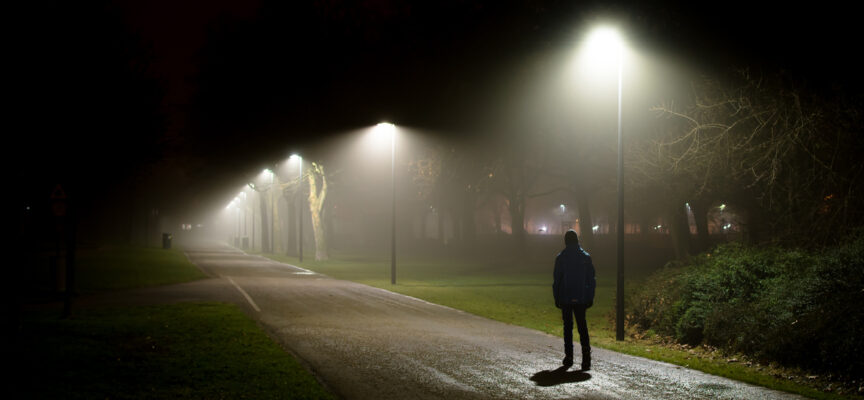During my forty-eight years, I have experienced approximately eight years total of deep depression. The first episode lasted for about six years and stretched from my twenties into my early thirties. The second episode lasted for about two years during my mid-forties.
During those years, I felt trapped and didn’t see a way out. In Dante’s Inferno—the book in which he depicts the inner bowels of hell—he portrays sinners trapped in an icy lake, freezing instead of burning. In my experience, depression feels like that.
During the first period of depression, there was nothing in life that could induce happy feelings, nothing that I truly enjoyed. I experienced life with a catatonic sense of utter tedium. Very briefly, I pondered suicide. For years, I threw myself into my studies—first a PhD program, later my lecture notes. My studies were just about the only thing that could help me squeeze the hours and days forward.
During the more recent depression, I never contemplated suicide. I have three beautiful children who are worth more to me than anything in this world. Thus, I never wanted to die. Yet, although I didn’t want to die, I also didn’t want to be awake. I began medicating periodically with alcohol. Binge drinking so that I could be unconscious for days at a time. But the drinking didn’t help. It made things worse.
During both periods, I felt like I had only enough mental, physical, and emotional bandwidth to stay alive and take care of each day’s most basic responsibilities. I lacked interest in nearly everything but my children. I didn’t have hope and eventually became unmotivated to even seek hope.
This is a summary—concise to the extreme—of my personal experience of depression
In the Jaws of the Black Dog
My personal experience of depression is mine. Yet, it also takes part in a general experience of depression, as articulated by many individuals and described in medical and psychotherapeutic literature.
Depressed people usually describe their condition using analogies, metaphors, and poetic language. Often, depressive people are eloquent when conveying their experience. The images we use are dark and evocative.
We speak of depression as the Dark Cloud or the Ball-and-Chain. We describe depression as having tentacles or being a deep pit. We liken it to being trapped in a maze or caught in an undercurrent.
Note: In this article, I use the “Black Dog” as a metaphor for depression. This metaphor comes from Winston Churchill who, during depressive episodes, that he was being hounded by the Black Dog. It seems that Churchill was drawing upon traditional folklore of the British Isles the Black Dog was a nocturnal apparition whose appearance was regarded as a portent of death. Thus, Churchill adapted the metaphor to depression, implying that depression is like a dog who is too fond of us and follows us even when unwelcome and unwanted.
We speak of darkness, emptiness, absence, loneliness. The mental and emotional pain seem unbearable. Further we don’t experience the pain as mere pain; we experience it as meaningless pain.
The pain is so bad that many depressed people want to die. We seem stripped of dignity and purpose, unable to survive apart from infantile dependence. We are terrified. We find it difficult to make decisions, given that we often cannot think clearly and have no emotional preferences.
This is a summary—concise again—of the general experience of depression.
Describing the Black Dog Anatomically
We have described the general experience of depression in everyday terms. Yet, we have not yet described it clinically. What is a clinical definition of depression?
Clinicians tell us that we should think of “depression” in terms of various types rather than a uniform phenomenon. Even though depressions of all types share a common experience, there is no one common cause.
Furthermore, its best to think of depressions as existing on a continuum of severity. When addressing the causes of depression, counselor David Powlison notes that humans are complex beings. We are “psychosomatic” beings, meaning that we are composed of both souls and bodies. Indeed, we are physically embodied (perhaps having a predisposition toward depression), socially embedded (influenced by our social situation), spiritually embattled (influenced by both good and bad spiritual forces), and sovereignly situated (living under God’s loving reign).
The most recent version of the American Psychiatric Association’s Diagnostic and Statistical Manual (the “DSM-V”) notes this continuum of severity.
The DSM-V refers to less severe types of depression as “dysthymic” disorders. In everyday language, people often refer to this as “situational depression.” More severe types of depression are categorized as “depressive disorder” or “bipolar disorder.” In everyday language, people often refer to this as “clinical depression.”
At the more severe end of the spectrum, a depressive person experiences many of the following symptoms: depressed mood, loss of interest, weight loss, insomnia or hypersomnia, psychomotor dysfunction, fatigue, feelings of worthlessness or guilt, diminished thinking capacity, and thoughts of death.
Tracing the Black Dog’s Genealogy
Thus, we have useful categories for understanding the symptoms of depression. Yet the question remains: what is it that causes depression? More to the point, what caused my particular depressive state?
Concerning depression’s causes, there are many theories. Some are medical, others psychological, still others spiritual. Yet, no doctor or therapist or pastor can be absolutely confident in diagnosing definitively the cause(s) of an individual’s depression. A person’s spiritual condition cannot be definitively known by anybody other than God. A person’s chemical balance or imbalance cannot be definitely known.
Thus, as psychologist Ed Welch argues, we should be patient and careful when exploring the cause(s) of our depression. If we decide too quickly on a particular medical diagnosis and commit immediately to long-term medication, we hurt our ability to rule out certain other physical or spiritual causes. Conversely, if we decide too quickly or definitively that our depression is traced to a particular spiritual deficiency, we hurt our ability to find potentially necessary help in the medical and psychological realm.
Thus, it seems wise for a depressed person to delay the reception of a final diagnosis. It takes time.
Escaping the Jaws of the Black Dog
It turns out that both of my depressive periods were tied to a combination of physical and spiritual-psychological causes.
The first period was triggered by a traumatic event that I hid, never revealing it fully to any one person. I covered my wound. As a result, I never received the help that I could have received. Had I opened up to a therapist or doctor, I would have been diagnosed with PTSD and counseled to undergo EMDR therapy. Had I opened up to a pastor and counselor, I would have been given spiritual and practical tools that would have aided significantly.
Eventually, I loosened the grip of the black dog. This loosening, or partial escape, was catalyzed by my engagement to a lovely young lady. Her love, calming presence, and faithful companionship soothed my frayed nerves, gave me a previously unimaginable hope, and fostered the type of happy feelings I had not experienced in years.
Yet, I had not treated the deeper causes. Thus, more recently, when I experienced another series of traumatic events, the Black Dog was able to regain his grip and dig his teeth more deeply and decisively into the exposed wound. At first, I tried to take the spiritual and therapeutic counsel available to me. Yet, initially I ignored the possibility of a physical cause (later I was diagnosed with the onslaught of a reinvigorated and inflated case of PTSD); thus, when the spiritual and therapeutic measures couldn’t tame my racing mind, my heightened nerves, and the onset of despair, I turned to alcohol.
I turned to alcohol because I knew exactly what it would give me. A small amount periodically during the day would calm my nerves and soothe my mind enough that I didn’t feel crazy. A significant amount at night would slow the racing mind and dull the nerves enough that I could sleep. Yet soon alcohol gave me more than I asked for. It drove me deeper into depression and exacerbated my problems.
Thankfully, friends intervened. I was diagnosed with PTSD and underwent intensive treatment in the form of EMDR therapy (which reconnected my “left brain” and “right brain,” reducing significantly the effect of any “triggers”), cranio-sacral massage (which released the enormous amounts of cortisol my body had stored), therapeutic counsel, and biblically-based Christian counsel. Together, these treatments restored my mind and body. For a year now, I have experienced a recovery that I previously could not imagine.
During upcoming weeks and months, I will write further pieces on depression as an often-multi-faceted phenomenon: physical, emotional, spiritual, and mental. I will explore depression as a unique form of suffering; engage in a deep dive on the various causes of depression; reflect upon a depressive person’s relationship to fear, anger, hopelessness, shame, guilt, and suicidal ideation; address the challenges of being a friend or family member of a depressed person; and conclude with a series of theological reflections on pain as the pathway to spiritual progress.
Trusting in a Being Far More Powerful than the Black Dog
In the meantime, I conclude by reminding the reader that no matter how big and powerful the Black Dog, there is a Benevolent Being far bigger and significantly more powerful who has a deep and vested interest in our wellbeing. This Being is near us (1 Pet 5:6-9), experiences our depression with us “from the inside” (Rom 8:23-30), and is capable of transforming us through our suffering (Heb 11:13-16). This Being—the Lion of the Tribe of Judah—keeps his eye on the Black Dog at all times and eventually will defeat him and bind his jaws forever.
Subscribe
Never miss a post! Have all new posts delivered straight to your inbox.








Thank you for your transparency and willingness to help others through your sharing. I am now 205 days sober after using alcohol to numb my depression and while I still struggle (due to situational factors), I 1) go to Him constantly for care and counsel and 2) will be asking my providers about the treatments you mention. Thanks again, Dr. Ashford, for your transparency.
Bruce this(especially the ending)moved me to tears. I’m there myself, choosing other sins to numb my pain and generate good feelings alone without connection to the body of Christ it’s easy to fall back stay and remain in the depression
Having known you from my time at SEBTS, it helps me to know that I’m not alone in my struggle with the Black Dog.
Jared, bro, thank you for opening up and sharing this. I’m grateful for you. Let me know if you’d every like to talk by phone.
if we would all confess our sins to one another I have a feeling we all wouldn’t feel much more comfortable. Thanks for serving the kingdom! excellent article and the church needs faaaaaar more of this. Lord move us to confess our sins – in the light of your Son – we will heal.
Bruce, I was just notified of your struggles. I am sure that you know my story. I, too, have been diagnosed with all of those acronyms. Life is tough – God & a few others are good. Where would I be without His amazing grace. A fellow struggler at age 66.
Bruce, a dear friend sent me the link to your story. I identify as I am sure that you already knew. No slogans from me as I trust God and wonder where I would be without His grace. At 66 I am doing life one day at a time. 336.972.7243
Bruce,
I identify with your struggle as I continue to live my struggle. Be assured of my prayers for you. Always available to talk.
Thank you for writing directly and compassionately about these topics. It has been of help to me as I walk through a dark period.
Richie, I hope you are doing well. Thank you for reaching out.
Any chance I can deal with this depression without the man made god? I realize the creation was necessary when it was created. I need to find a reason to live beyond my children and grandchildren, need to find it for myself.
Mike, if you’re in a place in life where you don’t believe in God, maybe a good place to start is to realize that you can be part of a “mission” bigger than yourself. You have the ability to help other people and do good in this world. When I was depressed, my “world” had shrunk to the point that I needed to be pulled out of myself. I needed to interact with other people and do some good in the world. As for “God,” you’re right that there are a lot of man-made “gods” out there. However, as for me, I came to believe that there is a God, a real one who is not man-made. It might be that, if you open yourself up to that possibility, you will find a connection with him. I recommend reading the life of Jesus as recorded in any of the four Gospels.